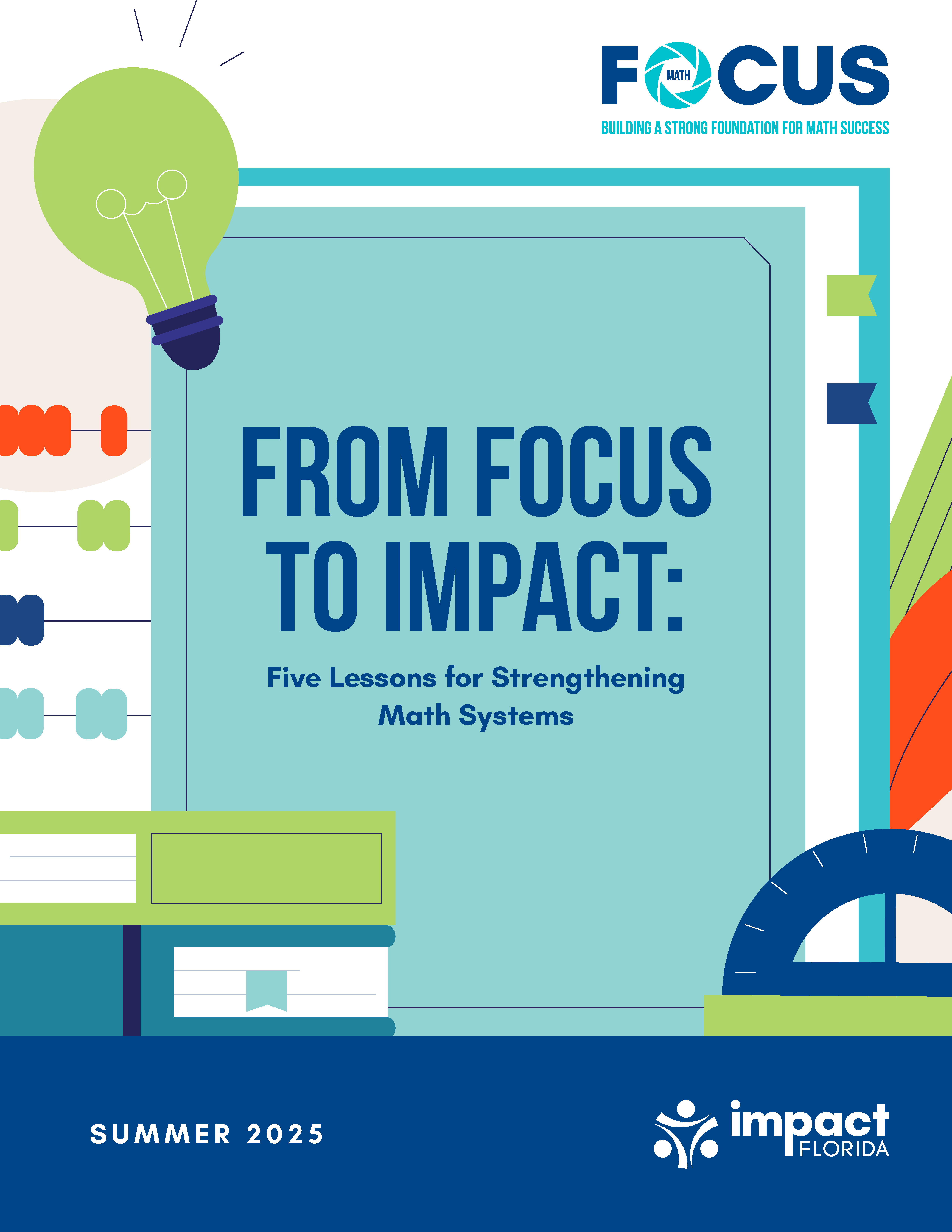Improving math instruction across an entire district is no small task. It requires more than new materials or one-time training—it takes collaboration, clarity, and a willingness to test ideas and learn along the way. Through the Focus Cadre, five Florida districts came together to do just that. Over two years, they examined data, listened to teachers and students, and piloted small changes that could grow into lasting improvements. What they uncovered were practical lessons any district can use to strengthen math systems and better support students.
This brief highlights five key lessons from this work that can benefit other district leaders in Florida and beyond:
- Bring more people to the table. Cross-department collaboration creates stronger, more coherent plans and shared ownership.
- Listen to teachers and students. Ground decisions in classroom realities and the voices of those most affected.
- Engage principals early. When school leaders are part of planning, implementation gains clarity and momentum.
- Start small to learn fast. Prototyping allows districts to refine ideas before scaling them across schools.
- Use data to stay on track. Monitoring progress regularly helps teams adjust supports and keep student outcomes at the center.
Early results show that these approaches matter. In prototype classrooms, 70% of instruction met the full depth of grade-level benchmarks—evidence that focused, collaborative change can improve practice and outcomes.
This guide is designed for district leaders who want to strengthen systems with intentionality. It offers insights that can spark reflection, inspire next steps, and help teams take practical action toward lasting instructional improvement.


